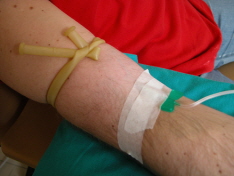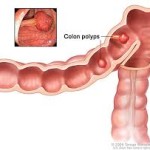 Colon cancer has several stages that help physicians to determine the extent the cancer has traveled away from the primary site and how best to treat the cancer. Doctors have determined that colorectal cancers are some of the most preventable cancers but currently account for the second highest number of deaths due to cancer.
Colon cancer has several stages that help physicians to determine the extent the cancer has traveled away from the primary site and how best to treat the cancer. Doctors have determined that colorectal cancers are some of the most preventable cancers but currently account for the second highest number of deaths due to cancer.
This increased number of deaths may be because early detection requires early testing. Stage zero, the earliest and most effectively treated stage, has no external signs or symptoms. Thus, patients aren’t likely to approach their physician for diagnosis or treatment.
Stage zero is the earliest stage of the cancer when it involves the lining, or mucosa, of the large intestine. It is often confined to the tissue in polyps which is tissue that bulges from the surface of the organ. When the polyps are removed during a colonoscopy the chance of them progressing to a later stage of cancer disappears.
Colon cancer at stage one involves more than just the inner lining but has progressed to the formation of the tumor and extends into the wall. This stage used to be called Duke’s A colon cancer. More specifically during stage one there is no presence of cancer in the lymph nodes nor metastasis. The growth is limited to the sub mucosa and the muscularis propria
Stage two colon cancer has penetrated the wall and spread into nearby tissue but has not yet reached the lymph nodes. At this point, the only treatment is a complete resection and because colon cancer at stage two has a tendency to recur, physicians often recommend chemotherapy or radiation. During this stage, the growth can perforate the peritoneum and directly invade close by organs but will not metastasize to distant organs.
During stage three, colon cancer has moved into the lymph nodes and is bound in at least three lymph nodes in the perirectal area. At this stage the cancer hasn’t spread to distant organs but has invaded tissue outside of the large intestines.
 Patients who experience stage 4 colorectal cancer find that the disease has spread to distant organs such as the lungs, ovaries and liver. At this time treatment is limited to relieving or preventing complications as opposed to curing the disease. Occasionally this spread is restricted enough to be removed by surgery. Following surgery, chemotherapy and radiation therapy may be used to alleviate, delay or prevent some symptoms. If the colorectal cancer has spread to deliver only regional chemotherapy can be given directly into the arteries that leads to the liver.
Patients who experience stage 4 colorectal cancer find that the disease has spread to distant organs such as the lungs, ovaries and liver. At this time treatment is limited to relieving or preventing complications as opposed to curing the disease. Occasionally this spread is restricted enough to be removed by surgery. Following surgery, chemotherapy and radiation therapy may be used to alleviate, delay or prevent some symptoms. If the colorectal cancer has spread to deliver only regional chemotherapy can be given directly into the arteries that leads to the liver.
Staging colorectal cancer is incredibly important in the determination of treatment protocols which may be used to help patients either eliminate the disease or alleviate their symptoms. Without staging, done through colonoscopy and imaging studies, physicians would be unable to accurately recommend protocols which could help the individual.
Resources:
National Cancer Institute: Colon Cancer Treatment
http://www.cancer.gov/cancertopics/pdq/treatment/colon/Patient/page2
Johns Hopkins: Staging Colorectal Cancer


Leave a Reply